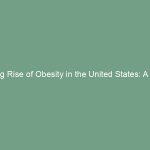The Dangers of Fake News and How to Protect Yourself
In today’s digital age, it has become incredibly easy to access and share information. However, with the increasing number of online news sources, it has become equally easy for misinformation to spread. Fake news has become a significant concern, with potentially disastrous consequences. In this article, we will explore the dangers of fake news and provide you with some tips on how to protect yourself.
What is Fake News?
Fake news refers to fabricated information that is presented as if it were true. The term has gained widespread usage in recent years, particularly in the context of politics. Fake news can take many forms, including misleading headlines, false stories, manipulated images and videos, and propaganda.
The Impact of Fake News
Fake news can have far-reaching consequences, both on an individual and societal level. Here are some of the dangers of fake news:
1. Misinformation
Fake news can mislead people into believing false information, leading to incorrect decisions and actions. This can be especially dangerous in situations such as elections, where false information can influence the outcome.
2. Undermining Democracy
Fake news can undermine the democratic process by spreading false information about candidates or issues. This can influence the election outcome and erode people’s trust in the democratic system.
3. Fueling Extremism
Fake news can also fuel extremism and hate speech by presenting false information about groups or individuals. This can lead to social unrest and violence.
4. Financial Gain
Fake news can be used to generate clicks and revenue for unscrupulous websites. This can lead to the spread of false information for financial gain.
How to Protect Yourself
Protecting yourself from fake news requires a combination of critical thinking and fact-checking. Here are some tips to help you identify and avoid fake news:
1. Check the Source
Check the source of the news story to see if it is reputable. If it’s a source you haven’t heard of before, do some research to find out if it’s trustworthy.
2. Look for Multiple Sources
If you see a news story that seems suspicious, look for other sources that are reporting on the same story. If multiple reputable sources are reporting the same information, it’s more likely to be true.
3. Check the Date
Check the date of the news story to ensure it’s not old news that’s being presented as new.
4. Fact-Check
Use fact-checking websites like Snopes or FactCheck.org to verify the accuracy of a news story.
5. Be Skeptical
Be skeptical of sensational headlines and stories that seem too good to be true. Use critical thinking skills to evaluate the information and its sources.
Conclusion
Fake news is a real and dangerous problem that can have severe consequences. It’s important to be vigilant and to take steps to protect yourself from false information. By using critical thinking skills, fact-checking, and being skeptical, you can help to combat the spread of fake news.
FAQs
- What is the definition of fake news? Fake news refers to fabricated information that is presented as if it were true.
- What are the dangers of fake news? Fake news can mislead people, undermine democracy, fuel extremism, and be used for financial gain.
- How can you protect yourself from fake news? You can protect yourself from fake news by checking the source, looking for multiple sources, checking the date, fact-checking, and being skeptical.
- What is the impact of fake news on democracy? Fake news can undermine the democratic process by spreading false information about candidates or issues, leading to an erosion of trust in the democratic system.
- What are some reputable fact-checking websites? Some reputable fact-checking websites include Snopes, FactCheck.org, PolitiFact, and the International Fact-Checking Network.
- Can fake news have real-world consequences? Yes, fake news can have real-world consequences, including influencing elections, inciting violence, and spreading false information about important issues.
- Why is it important to be skeptical of news stories? It’s important to be skeptical of news stories because fake news can be designed to be sensational and attention-grabbing, often with the intent of generating clicks or spreading propaganda.










